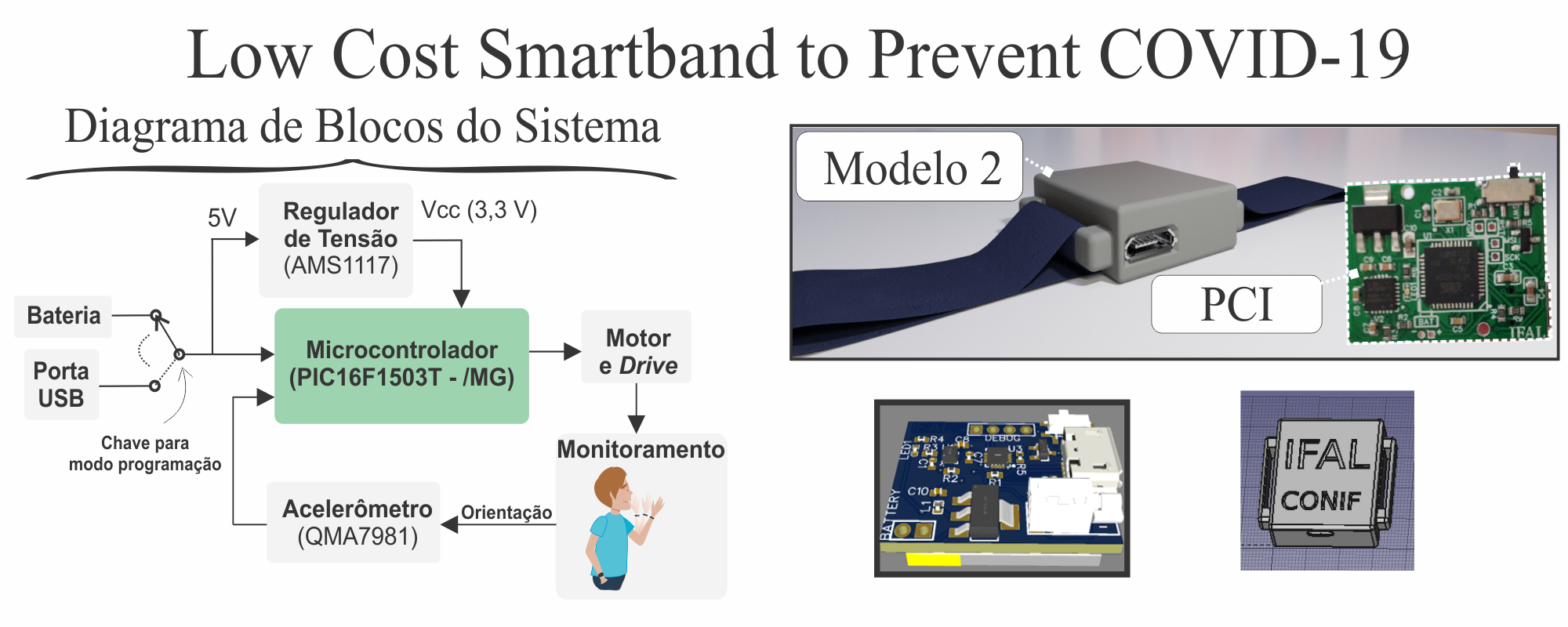Low Cost Smartband to Prevent COVID-19
Keywords:
smart band, COVID-19, low costAbstract
According to the World Health Organization (WHO) and the Brazilian National Health Surveillance Agency (Anvisa), one of the main means of contagion in the second wave of contamination by the coronavirus (COVID-19) is the hands. Every moment, the hands are used to greet people and handle objects, but shortly thereafter, it is common to use them to touch the face. Such an involuntary action can take all kinds of harmful agents into our bodies. Hence, this work aims to present and share the development of a low cost bracelet that helps the user not to touch the face with the hands. As a result, it is expected to reduce the spread of this virus through this type of contagion. For this, the bracelet monitors the position of the hands and issues an alert when it detects the approach of the hand to the face as a warning to the user not do this. Initially, a first prototype was made to observe local public (state of Alagoas-Brazil) interest in the product. This way, there were a positive feedback from public. The sequence of the project was extended in the development of the product such a way that it can be used by the final public in risky regions. Due to its low cost, this bracelet can be used by people from underdeveloped countries like Brazil, and countries in Africa to stop practicing this harmful habit for their health. In this sense, some financial grants for Humanitarian relief efforts can be considered. Thanks to government funding, 500 bracelet units are being made for donation to the state of Alagoas, Brazil. It is important to mention that the objective of this work is not to replace the existing preventing methods, but to offer a bracelet proposition to come as an extra support to reduce even more that risk to contract COVID-19. Hence, the solution can be added with all other existing in order to decrease even more the chances of contracting COVID-19. Therefore, the social distance, the use of
masks and a good hand hygiene are still the safest way to avoid COVID-19. However, our bracelet can help people to avoid the eye touching, such habit can lead to COVID-19 that traditional low cost cotton masks do not protect and is more comfortably for hours of use than face shields.
Downloads


